Kleros Layer 2: Decentralized Justice in the Mainstream World
Can Kleros resolve disputes in the mainstream world? How would it work? Short answer? Yes. See how right here!
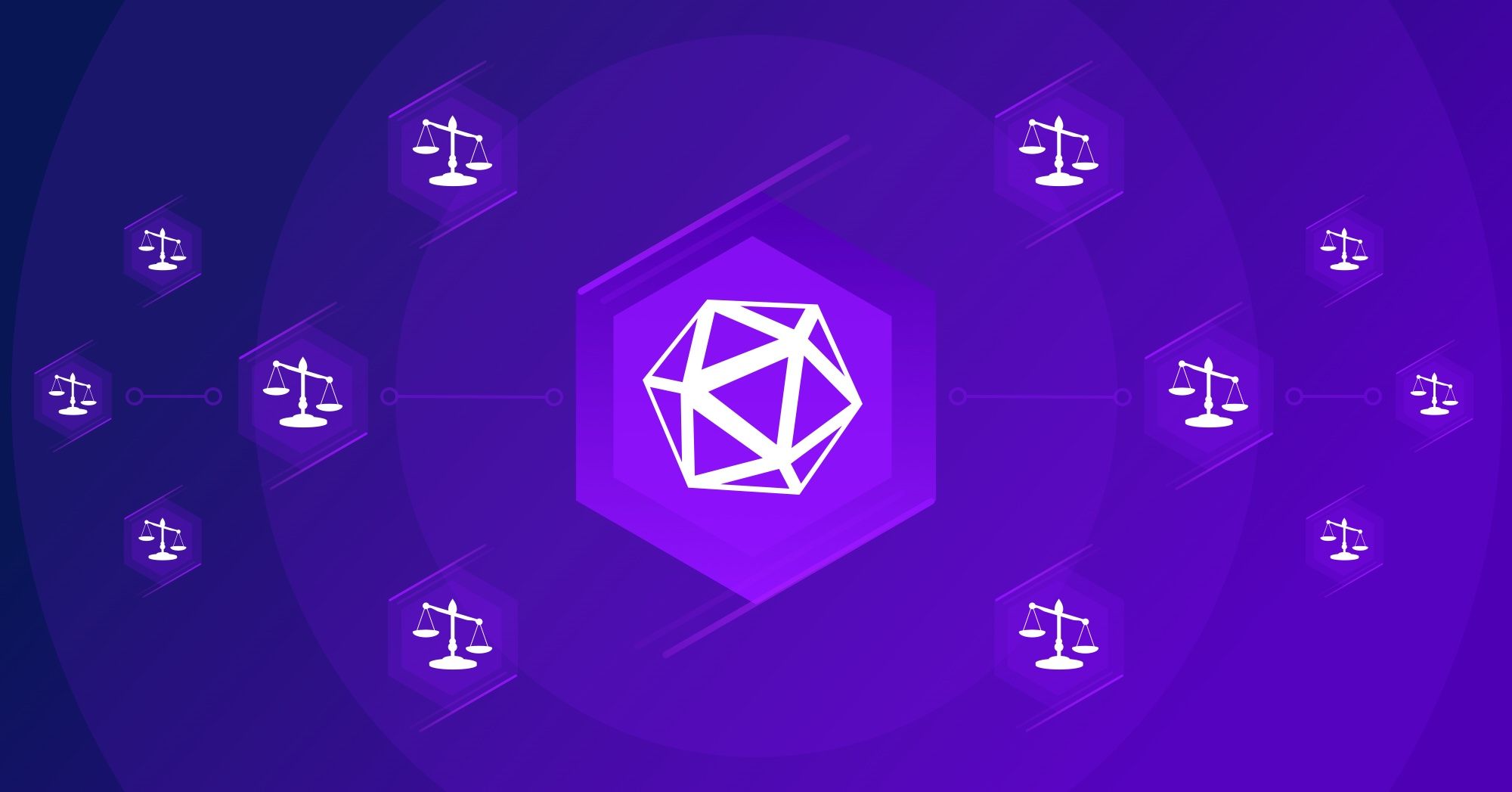
Bringing Justice as a Service to corporates and institutions...
We usually present our vision of Kleros as an arbitration layer for the decentralized ecosystem. A protocol to which all DAOs can delegate dispute resolution.
Quite often, we are asked the following question: can you use Kleros to resolve disputes in the mainstream world? Could it be used, say, by eBay to solve user disputes? Or by governments to handle small claims? Or by insurance, finance and other companies to implement higher fairness standards when handling customer claims?
The answer is yes.
As a decentralized protocol, for Kleros it doesn’t make a difference whether the case comes from the crypto or the non-crypto world. The main challenge in mainstream use cases is about implementation details.
Decentralized platforms can easily integrate with Kleros by implementing the ERC 792 arbitration standard into their smart contracts. But this can be challenging for non-crypto companies.
Mainstream businesses typically don’t handle cryptocurrencies (and may even have regulatory constraints for doing so). Also, they may be unable or unwilling to deal with the complexity of Kleros (e.g., learning how the incentive system works, etc.).
Corporates and institutions just want to delegate dispute resolution to a business process outsourcing (BPO) provider and pay a fee (in fiat!) for the service rendered. And this is exactly the problem that Kleros Layer 2 comes to solve.
Kleros Layer 2: Bringing Decentralized Justice to the Mainstream World
Alice is Customer Claims Manager at the e-commerce platform MuchTrade. She’s in charge of the resolution process for thousands of customer disputes.
The process is currently handled by an internal team that solves claims by following a set of predefined rules.
Alice is under pressure by different agents.
On the one hand, the CEO demands that she cuts costs in the resolution procedure, which is slow and expensive. On the other hand, customers usually complain that the resolution process tends to be biased in favor of larger users.
Alice gets in touch with Bob, business developer at FairCommerce, a BPO built on Kleros that provides dispute resolution services for e-commerce platforms.
Bob sends Alice a brochure explaining their services:
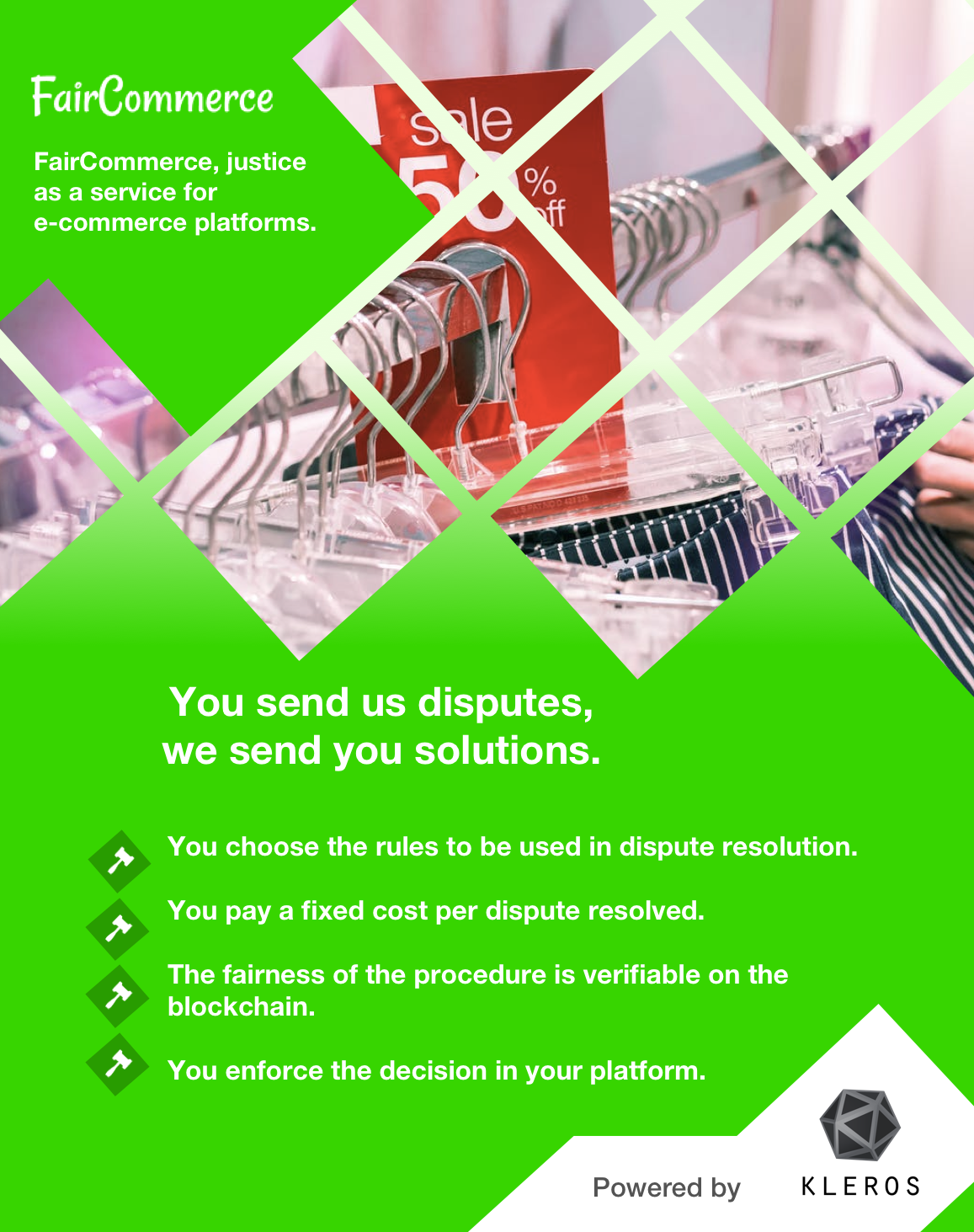
From the point of view of MuchTrade, it's no different than contracting any other BPO such as a contact center or one that handles administrative tasks.
FairCommerce will handle all the complexities of Kleros and of dealing with crypto. In exchange for this, it will collect a fee per case resolved.
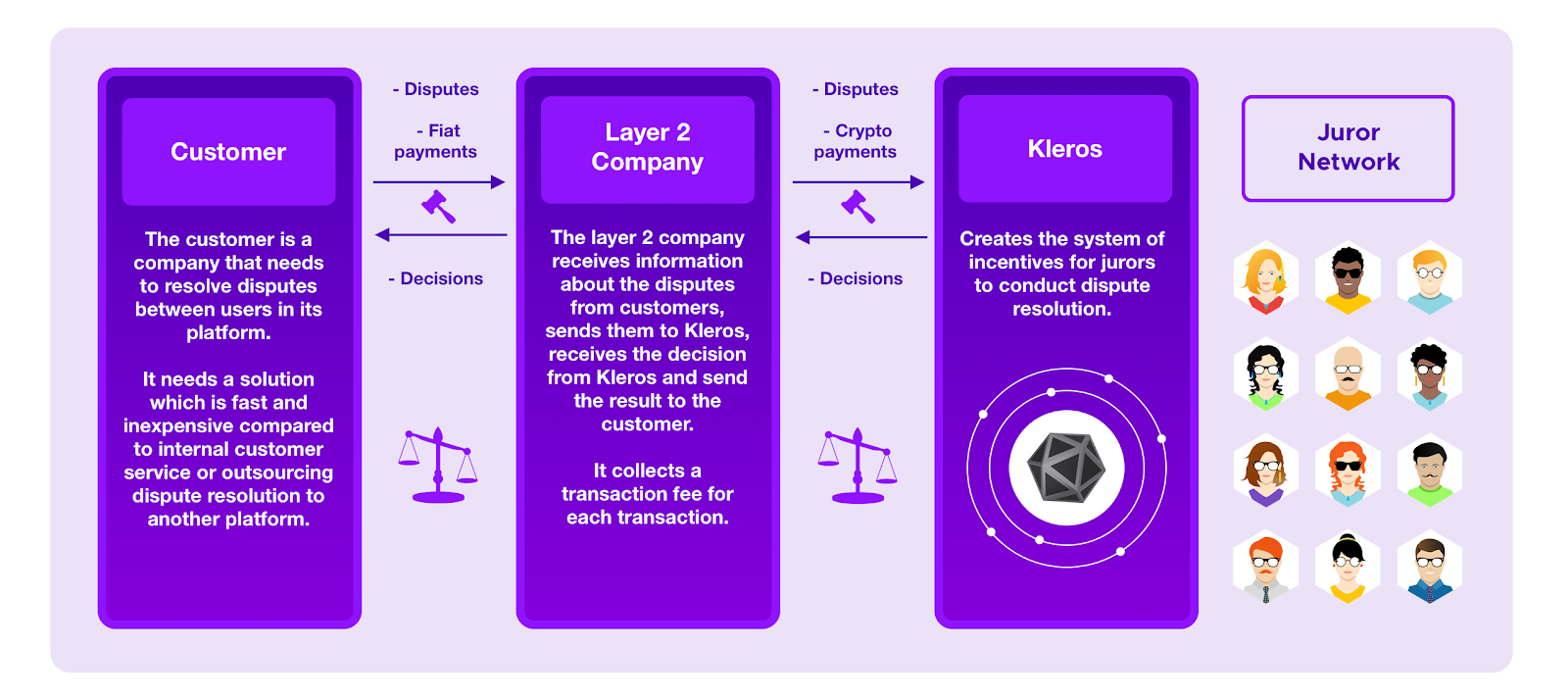
Different Layer 2 companies will address use cases in different industries. Some will specialize in e-commerce, others in insurance, others in finance and so on. They will all tap into Kleros juror cryptonetwork for resolving disputes.
Kleros protocol (and the fact that it's built on a blockchain) will provide verifiability and guarantee of a transparent procedure. Customers know that the decision-making is verifiable on the blockchain.
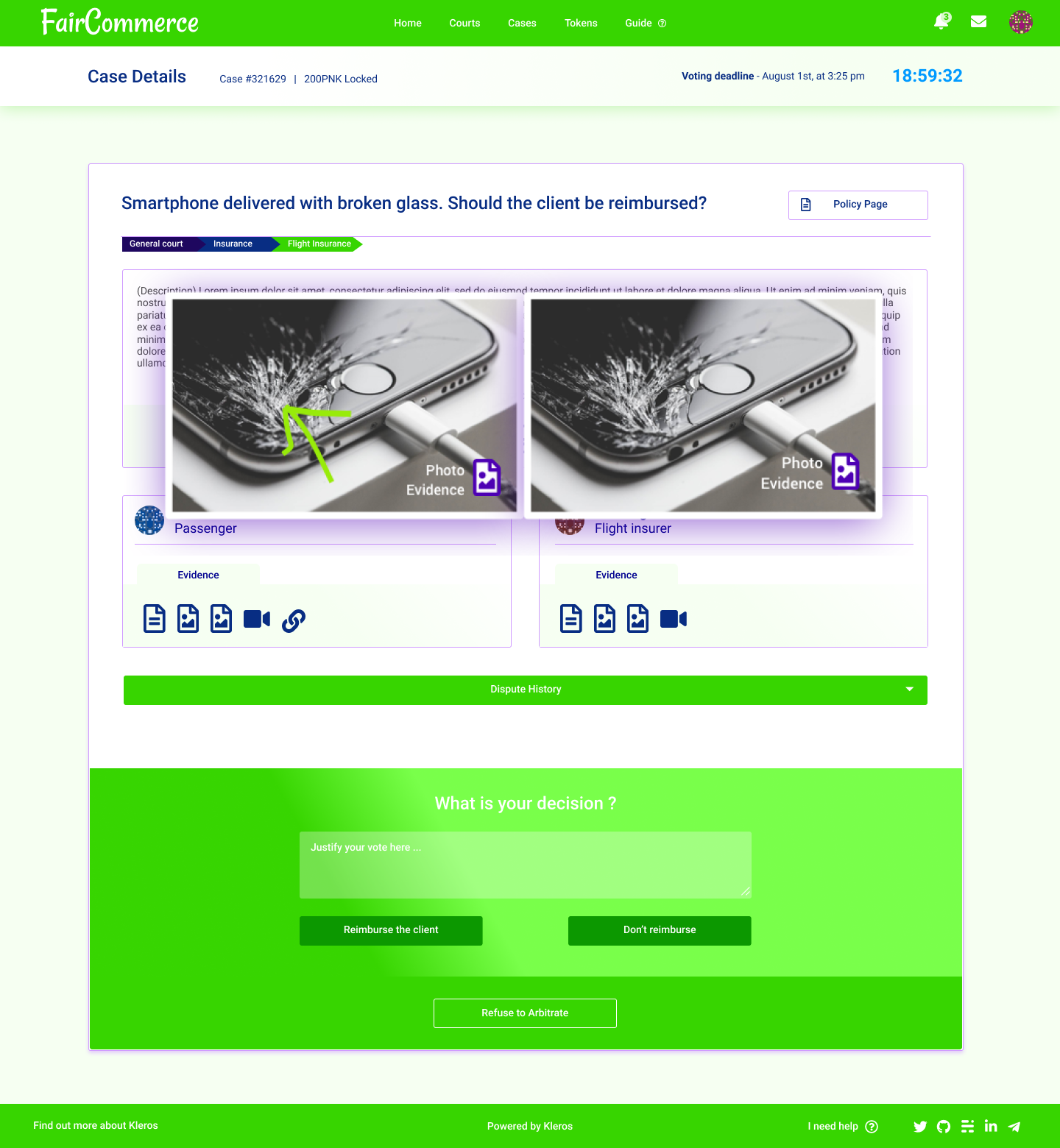
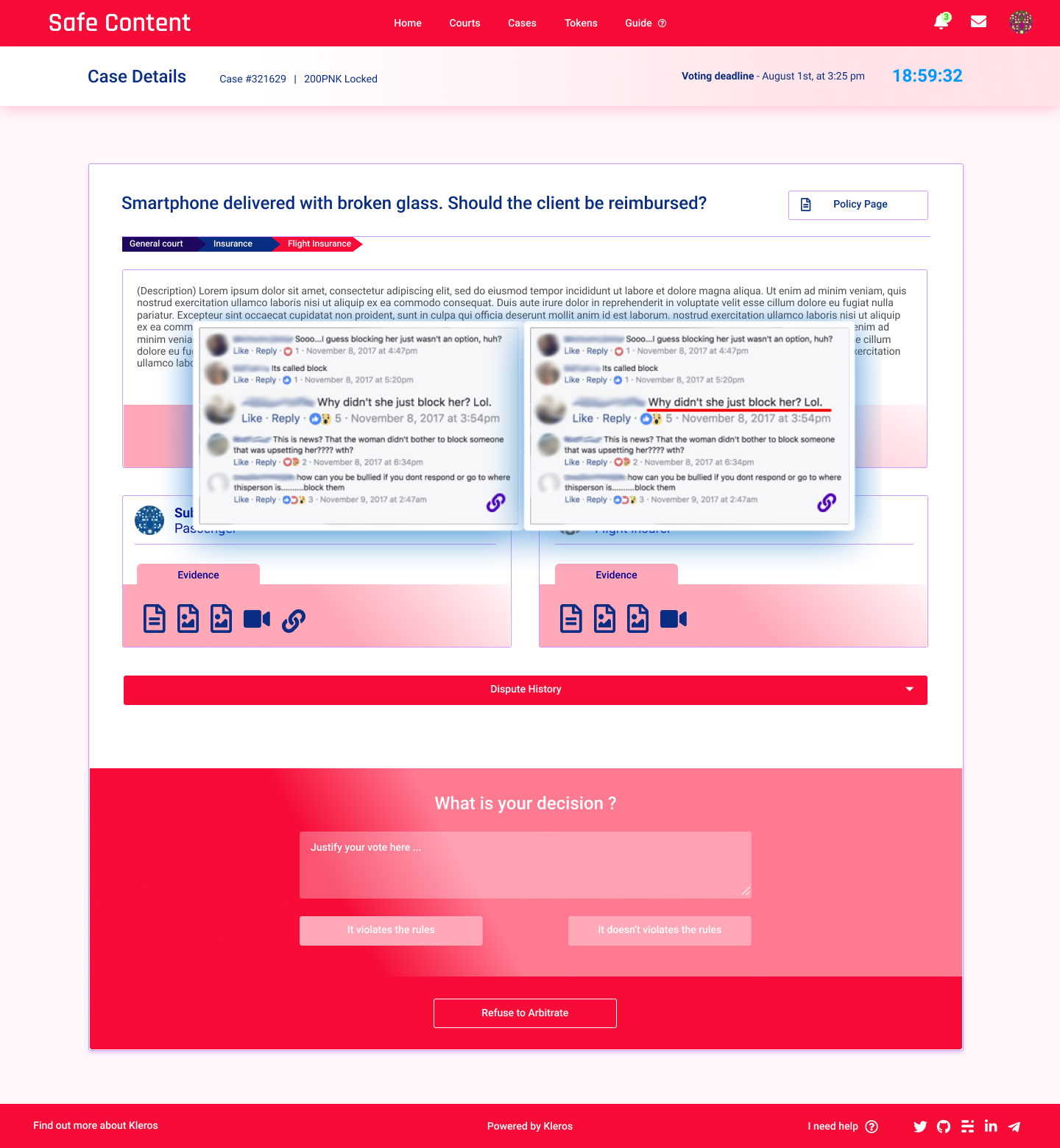
The Early Use Cases
Kleros Layer 2 isn’t a vision for the far away future but a reality being shaped in the present. Entrepreneurs are already building Layer 2 products on top of Kleros.
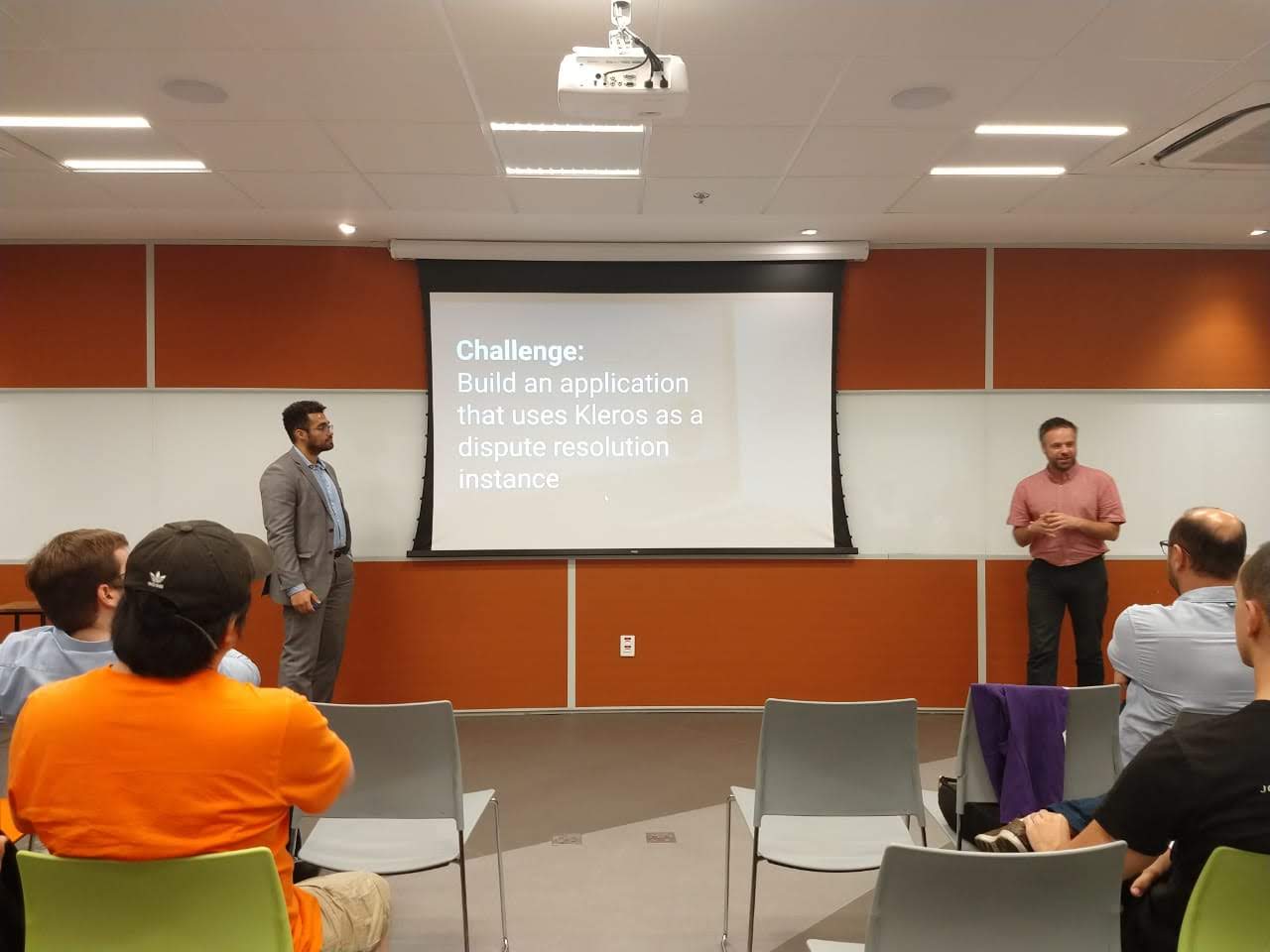
Kleros is academic partner at the program in Legaltech and Digital Transformation of Law at Paris 2 Panthéon-Assas University. Lawyers who participate in this postgraduate program are required to use legal design principles to build Layer 2 products based on the Kleros protocol.
These are the products they've built:
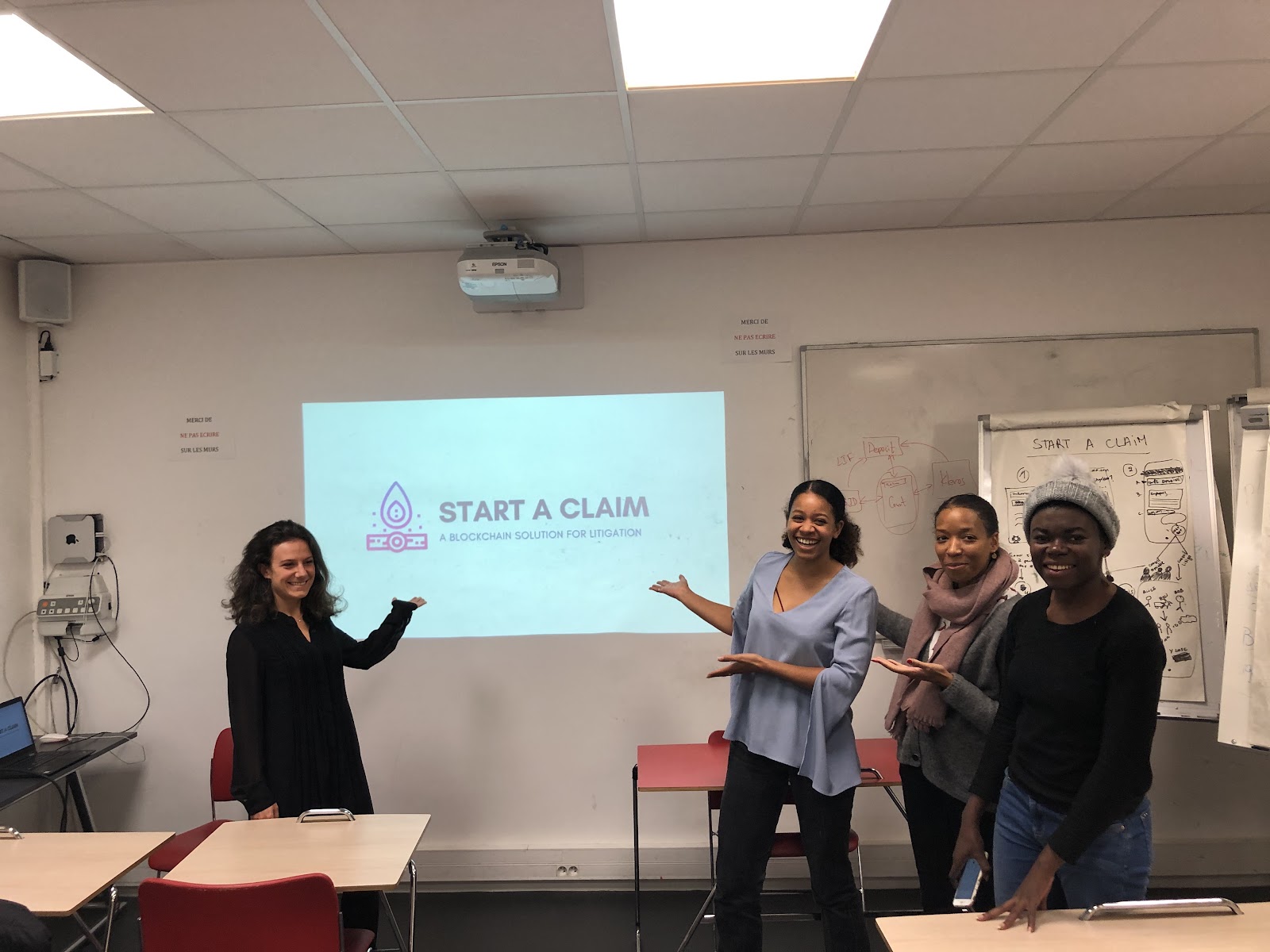
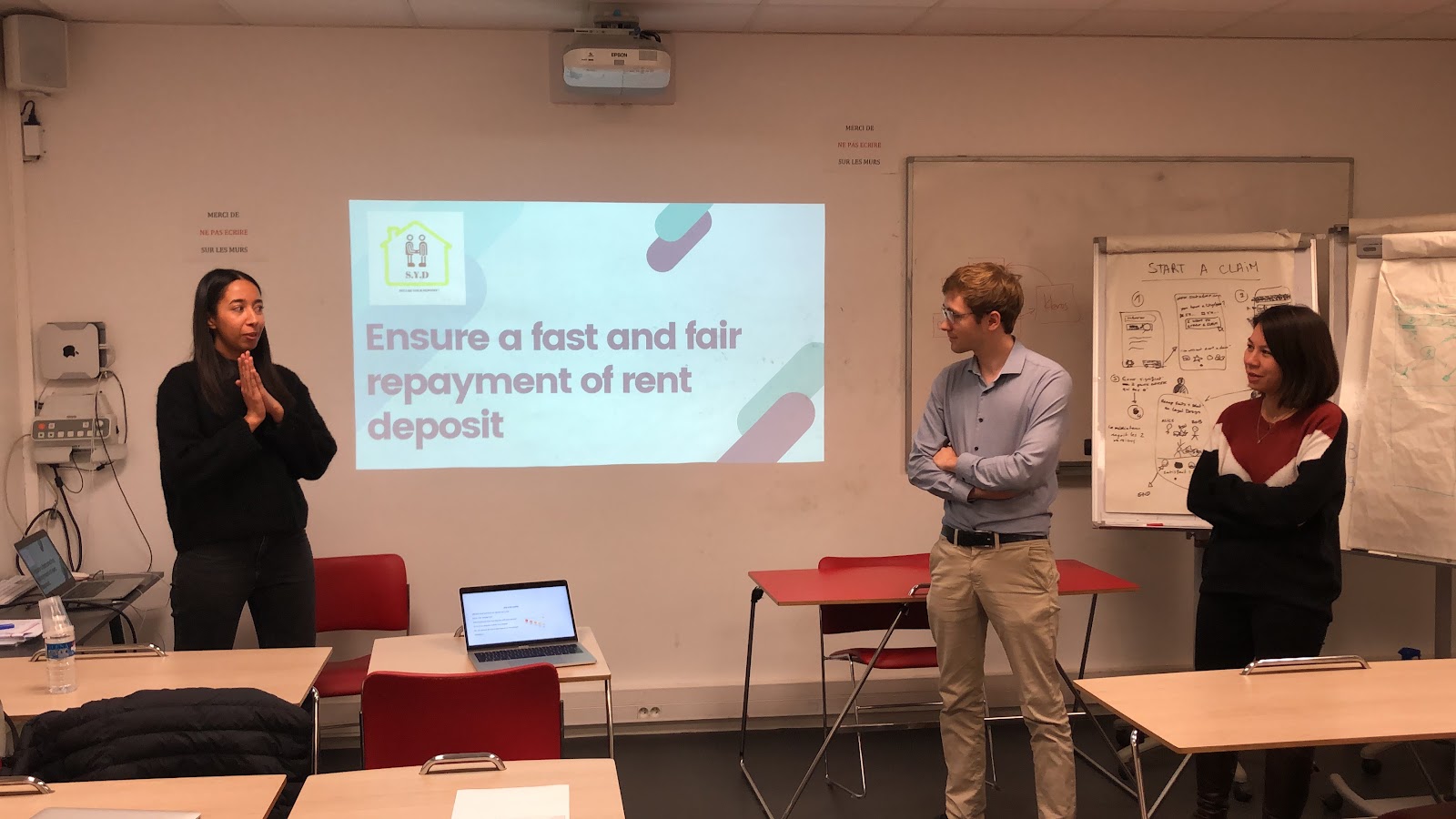
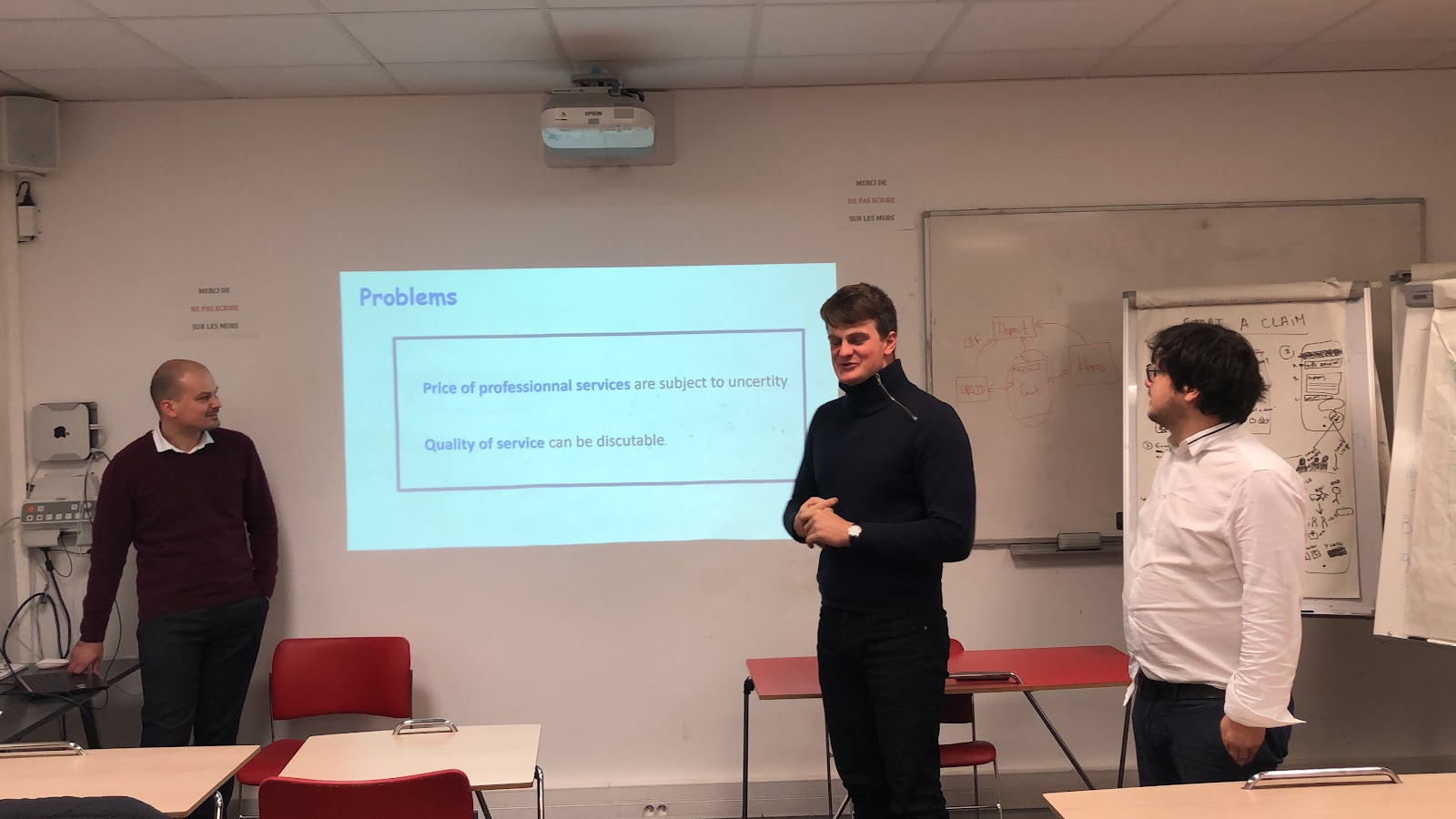
Justice as a Service
Companies need to focus on what they do best and then try to delegate other processes to agents that are able to do them faster, cheaper and better.
MuchTrade needs to focus on attracting users and optimizing revenue per user, instead of managing a dispute resolution team.
Companies are already used to delegating customer service processes into lower cost providers such as contact centers.
Kleros enables a process that is radically more efficient in producing fair decisions in wide variety of customer claim scenarios. Many Layer 2 companies will be created for addressing these customer needs.
Layer 2 entrepreneurs will experiment and learn. And they will find the answer to a number of questions: What is the best way to sell "justice as a service"? What is the best way to charge for the resolution procedure? How should the business model work?
In the crypto ecosystem, Coinbase played the important role of making Bitcoin accessible to the masses. It abstracted complexity and provided a friendly process for people to use crypto.
Kleros Layer 2 will have the same effect on decentralized justice. It will bring justice as a service into the mainstream world.
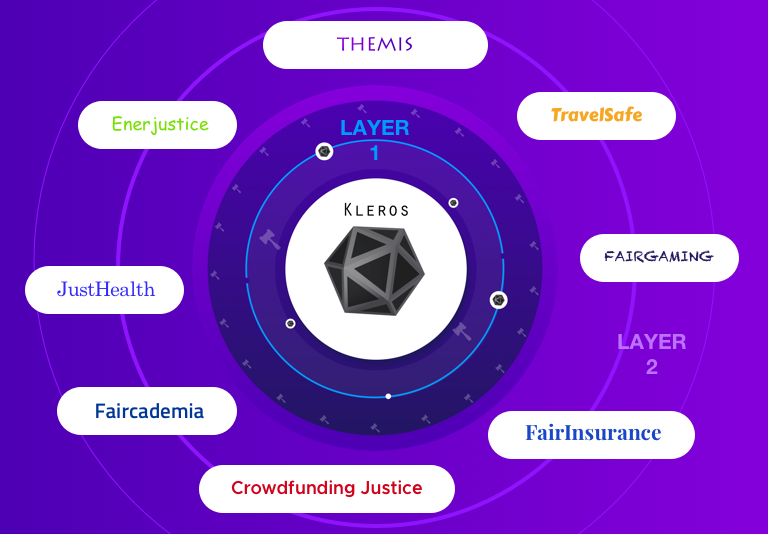

Where Can I Find Out More?
Join the community chat on Telegram.
Visit our website.
Follow us on Twitter.
Join our Slack for developer conversations.
Contribute on Github.
Download our Book


